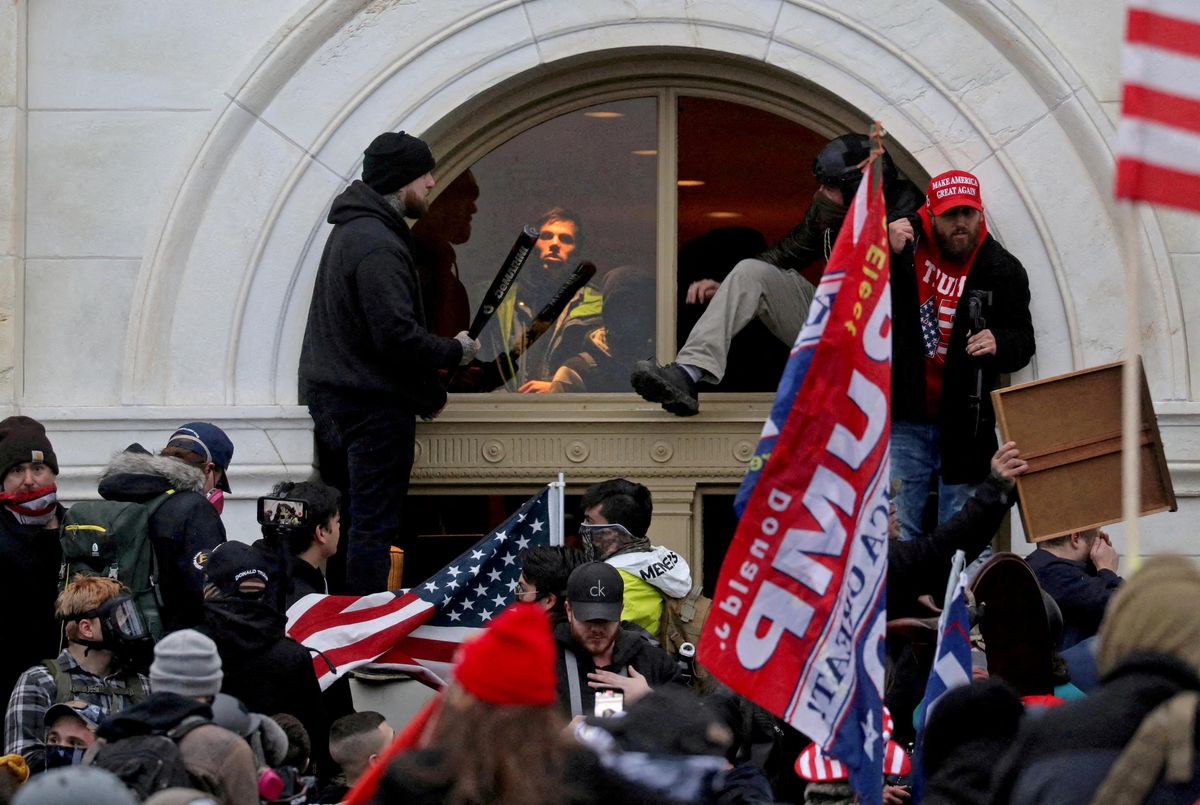House holds first public Jan. 6 hearing in prime time
The House committee investigating the Jan. 6, 2021, assault on the US Capitol held its first public hearing on Thursday night, with most news channels airing it in prime time (notably not Fox News). Viewers were shown graphic, never-before-seen footage to demonstrate how, as Rep. Liz Cheney (R-WY) said, former President Donald Trump “lit the flame of this attack.” The hearing aired revelatory clips of testimony from former US Attorney General William Barr, who told Trump that claims about a stolen election were “bullshit,” and from Trump's daughter Ivanka, who said she’d accepted Barr’s perspective. And some participants in the attack testified that they were on hand because Trump had asked them to be there in Washington, DC, on that day. Will the hearings change hearts or minds? Unlikely in such a polarized environment, but Eurasia Group’s lead US analyst Jon Lieber says Democrats hope the hearings will help keep the focus on Trump ahead of November’s midterm elections, which are slated to be a washout for Democrats. Republicans, for their part, would rather make midterms a referendum on President Joe Biden and kitchen-table issues like inflation. The hearings — a culmination of one of the Justice Department’s largest-ever FBI investigations, which has led to more than 800 arrests across nearly all 50 states — will continue next week.
China doubles down on Zero
Beijing has reportedly ordered regional and city governments to begin building additional hospitals and COVID-19 quarantine facilities. Experts say the decision shows China is furthering its commitment to zero-COVID, despite the massive social and economic disruptions the policy entails. In Shanghai, residents were largely trapped in their homes for more than two months. Although the government declared victory against the virus and lifted restrictions there earlier this month, sections of the city have already been ordered to resume lockdowns and mass testing again. Public health experts doubt the policy can be maintained successfully, given the transmissibility of the omicron-related variants. But low vaccination rates among the elderly, questions about vaccine efficacy, and a political attachment to proving that zero-COVID can work have compelled President Xi Jinping to double down on the policy, particularly as he heads for “re-election” at a Party Congress this fall.
Somalia’s new president issues dire warning
Somalia’s newly tapped President Hassan Sheikh Mohamud was inaugurated on Thursday, and his message to the international community was clear: help us stave off a dire famine. East Africa has long been plagued by a terrible drought that's decimated crops, and Mohamud’s plea comes as the United Nations warned this week that more than 200,000 Somalis are on the brink of starvation. Indeed, Mohamud – a former academic who served as president from 2012-2017 – says he will foster “political stability” in the notoriously volatile country. He has his work cut out for him: Al-Shabab, a jihadist militant group linked to al-Qaida, has long wreaked havoc there, including during the recent vote, and controls swaths of the country. The deteriorating security situation recently prompted the Biden administration to return US troops to Somalia two years after then-President Donald Trump withdrew nearly all of the 700 US troops stationed there.
CORRECTION: An earlier version of this article stated that vaccination rates in China are low. In fact, it is the vaccination rate among China's elderly that is low -- fewer than half of Chinese over 70 are fully vaccinated and boosted.


















